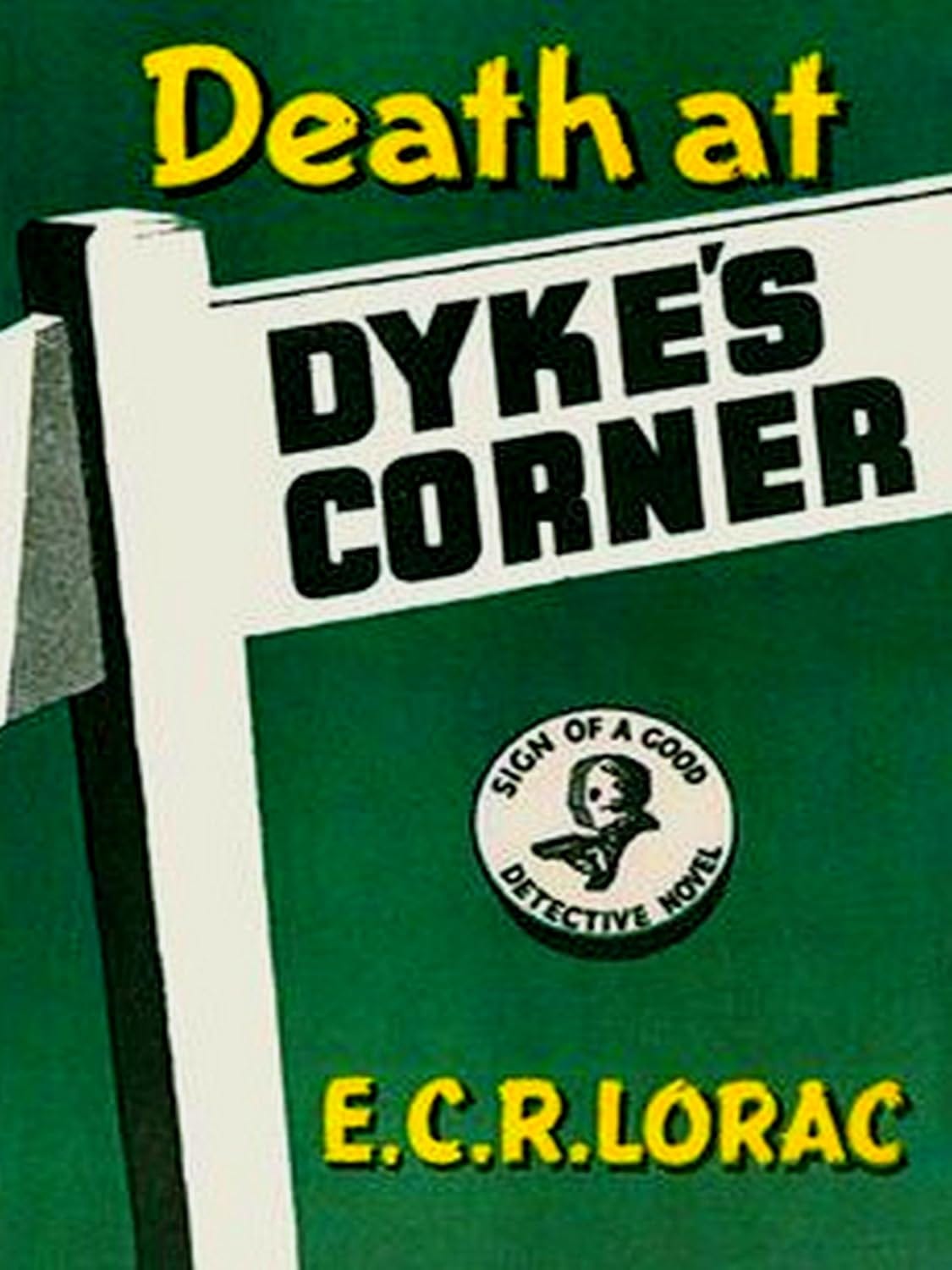Friend and fellow author Mel Dunay put me on to this author. Knowing my fondness for Dorothy Sayers, Margery Allingham, and Agatha Christie, she suggested I try out their contemporary, ECR Lorac. As her books are very inexpensive in ebook, I picked up a few and started reading happily. As always, links in my review posts which lead to Amazon help defray my reading costs by dropping a few cents in my affiliate account. Thank you!
The first one I read through, Death at Dyke’s Corner, was a good introduction to the convoluted plots and suave detective this author seems to favor. ECR Lorac is, of course, a pseudonymic penname with ambiguity over the sex of the author, as was common at this time. I am amused that Lorac is Carol in reverse, which was a name the author used for another penname.
As it turns out, I began in the middle, as Death is the nineteenth in her series about Scotland Yard detective Robert MacDonald. This isn’t a problem for the casual reader, however, as the episodes seem to be quite capable of standing on their own. As I have time, I may go back and work forward from the start, or not, as I’m also still dipping into Charlotte McLeod’s Canadian mysteries with enjoyment (other than the Case of the Giant Hogweed, which is bafflingly odd, and cannot be read without having read the earlier books in the series as it relies entirely on the characters being dropped into a weird early Anglo-Saxon fantasyland. But I digress), and besides, I’m not sure I need to start at the start with this series.
The case in Death begins with a near-run car accident, where two young man come around the titular corner and narrowly escape crashing into an immobile auto, parked in a very bad place on the road. They soon realize the driver is dead, and from there, the whole thing goes awry, as you might expect.
The family of the dead man, who was a very bad egg, are portrayed in a sympathetic light as well as likely suspects in his death. The small village is also rife with possible suspects, as the dead man was an infamous developer notorious for bringing supermarkets or department stores (or something like a combination of those) which of course put small businesses under.
The ultimate conclusion is… complicated. Enough so that I kind of scratched my head, and wondered at the sheer number of red herrings the author had been strewing liberally through her plot. It was still amusing to read, but don’t expect realism in her police procedurals!
I would recommend this one, as a fun read. I would not recommend Black Beadle, which was published in 1939 and attempts to balance some of the sentiments of the era, which are disturbing to read, although if you are interested in the history of the second World War, it is an unconscious glimpse into the time and mentality of many.
Since these sorts of mysteries are my comfort reads, I’m very happy to discover a new-to-me author, even if she is long-dead. The availability of ebooks stretching into the distant past means I never have to worry about running out of reading material!






What a great thing, bringing back less-known (today) works! I love it, thanks, Cedar!